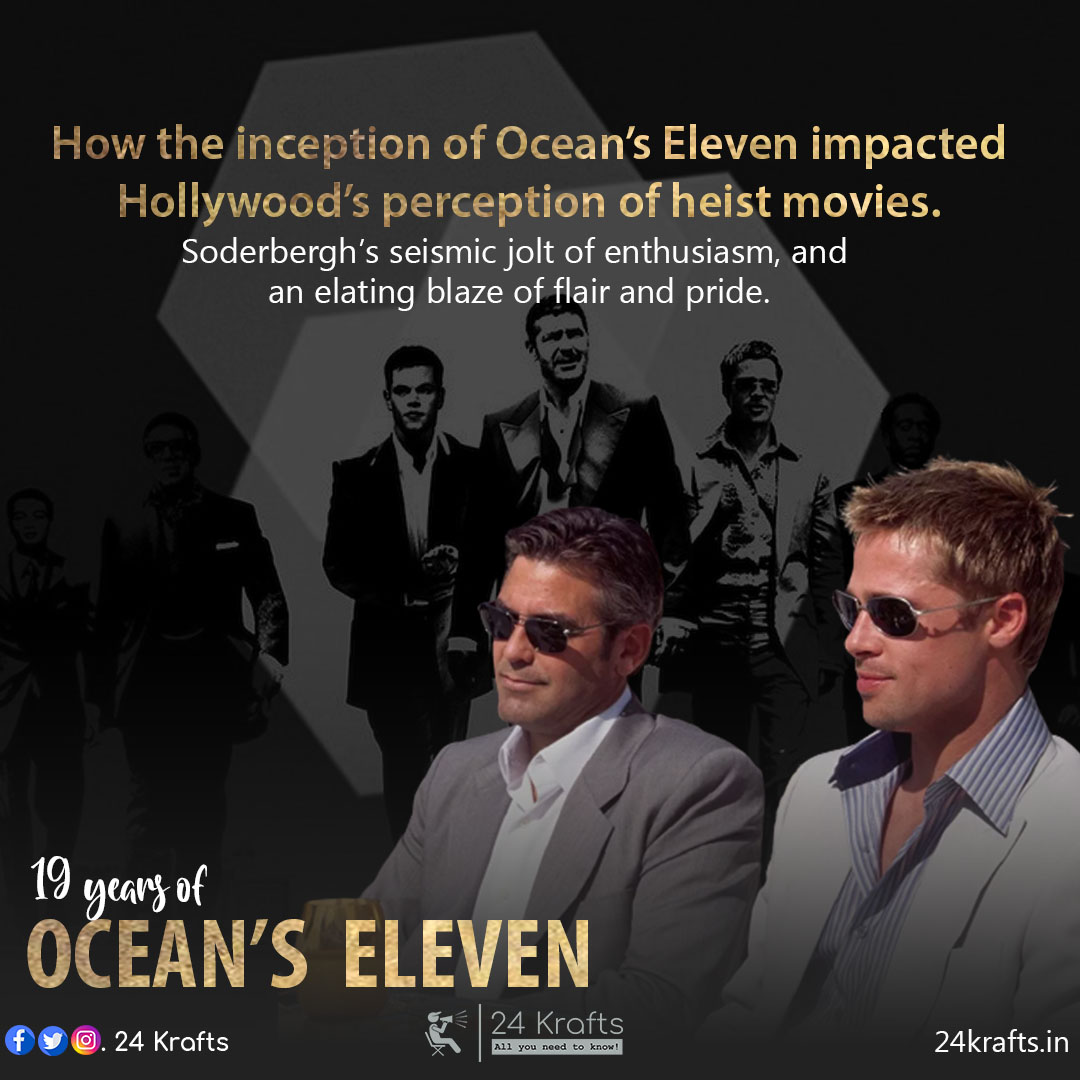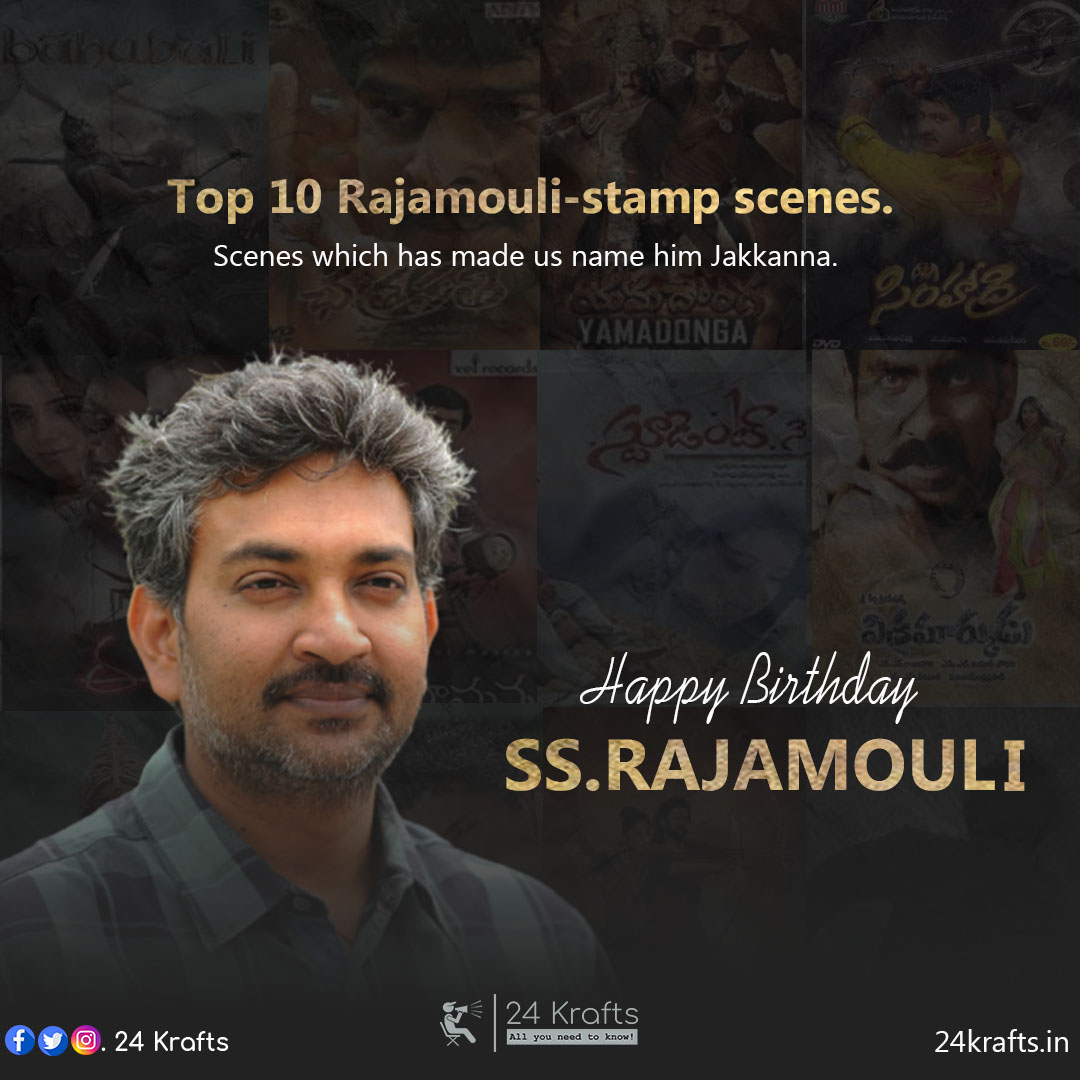There’s always going to be something compelling about a crew pulling off an elaborate theft onscreen. Heist movies have suspense, stakes, and conflict baked into the structure. It’s why the format has survived and thrived well into the 21st century. A heist movie with a serious demeanour but comic underpinnings, Ocean’s Eleven performs its grand larceny through a collection of star turns by the likes of George Clooney, Brad Pitt, Julia Roberts, Matt Damon, Don Cheadle and Andy Garcia. It’s a movie that demands not to be taken too seriously. But at times it feels so weightless that the intrigue comes more in seeing how the writer and director will wiggle out of plot predicaments than how a team of thieves will rip off Las Vegas casinos.
Written by Ted Griffin and directed by Steven Soderbergh, the Ocean’s Eleven remake was cool, fun, energetic, and had more stars than could reasonably fit on a poster. And in December of 2001, it was a massive hit, making $450 million worldwide and cracking the top ten domestic earners for the year, just ahead of Jurassic Park III. The ripple effect caused by the movie’s success is undeniable; it went on to include much more than the two direct sequels and 2018’s all-female side-quell, Ocean’s Eight. In the eyes of the studios, Ocean’s Eleven became the template for what a marketable and bankable heist movie should look like in the 21st century. But in the nearly 17 years since, that model has barely been updated.
To understand what made Ocean’s so special at the time, it’s worth examining the state of the genre at the time of its release. With the crime-movie boom of the early ’90s, brought on largely by the rise of Tarantino and the one-two punch of Goodfellas and Casino from Scorsese, crooks and thieves were in vogue. Out of that came a string of pulpy, populist masterpieces, like L.A. Confidential, Fargo, and Michael Mann’s heist opera, Heat. The worldviews were bleak and violent, but adherence to gritty realism allowed the stories to become about something more than cops and robbers.
Soderbergh’s Ocean’s recaptured some of the Leonard verve from his previous Out of Sight and the same reverence for New Hollywood cool of the late ’60s and early ’70s, but it felt entirely fresh in 2001. The daring plan to rob three casinos at once is certainly dangerous, but Danny Ocean (Clooney) never really sweats it. His eyes are on recapturing the heart of his wife, played by Julia Roberts. More than anything Ocean’s Eleven is a joy. These characters are likeable and like each other. They seem to have fun doing their job. The same could be said for the actors onscreen.
And the studios paid attention. Eleven’s success coincided with a sea change in studio filmmaking. It hit theatres on December 7, 2001, less than a month after the first Harry Potter film and 12 days before Lord of the Rings: The Fellowship of the Ring. X-Men, the year before, and Spider-Man, the year after, form the foundation of what would become a full-on superhero wave by the end of the decade. The kinds of movies being put out by these major corporations were becoming less varied, and adult-focused fare, like crime films and rom-com’s, was about to become more scarce. But Ocean’s defied the calculations of studios that were starting to value intellectual property and brand awareness above all. Sure, there was the original Rat Pack film, but Ocean’s wasn’t a smash because of people’s fond memories of Frank, Dean, and Sammy. It was that alchemical mix of genuine stars, confident filmmaking, and the ability to dazzle.
Certainly, the characters in the Ocean’s films aren’t literal superheroes. But Danny Ocean’s gang of thieves aren’t all that far off either. Both the 1960 and 2001 versions, for instance, spend a lot of time assembling the team, a classic move in superhero supergroup movies, and naming each of their strengths that make them a vital part of the team. And those strengths seem pretty impressive. Some of them are just very good at diverting attention. Others are excellent at lock-picking or pickpocketing. There’s the contortionist who can worm his way around ladders and the guys who know everything about explosives and, of course, there’s Danny Ocean, whose main superpower is convincing people to do what he wants them to do.
None of these characters alone could pull off a heist as big as the movies want them to, stealing precious and heavily guarded jewels, for instance, or knocking over a bunch of Las Vegas casinos. But together, their powers combine to make something great. They’re not trying to save the world or defeat any villains; they’re just trying to settle scores and get a bunch of cash. But their combined abilities make them extremely powerful. Soderbergh seems to make a different-looking movie on each occasion he gets behind the camera, though he does fall back on the stuttered, elided edits purloined from Jean-Luc Godard’s splintered cuts. But Soderbergh does some of his best work in ”Ocean’s Eleven,” working with a ticking suavity he tried to bring to lesser movies like ”The Underneath.”
He has a breath-taking amount of technique at his fingertips, aided immensely by the popping freshness of the score by David Holmes, who he worked with successfully on ”Out of Sight.” Holmes scales his rhythms to the picture’s pace, giving the movie a heartbeat. Soderbergh’s cinematography adds a candy-coloured snap; the tints come out of a pack of Jolly Ranchers. The colour scheme balances the bland phoniness of the current Vegas, which functions as a welcome mat for all ages in contrast with the old-school menace of the city, a Fifth Amendment playground.
This film is so brazenly showbiz that everyone seems to be in costume. It depends on hard work and movie star combustion and gets by because the actors bring verve and professionalism to the enterprise. For my money (so to speak), Soderbergh’s 2001 reboot is the most fun of all of these: It has the thrill of finding out which cool, suave actor will show up next, but it also sails along rhythmically in a way the 1960 film doesn’t, skilfully building up tension and excitement. It’s like watching jazz, or a soccer team setting up the perfect play. Something about it is an unmitigated joy — even if, at the end of the day, you would never condone thievery.



